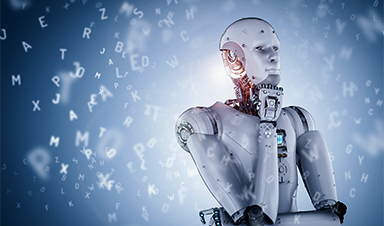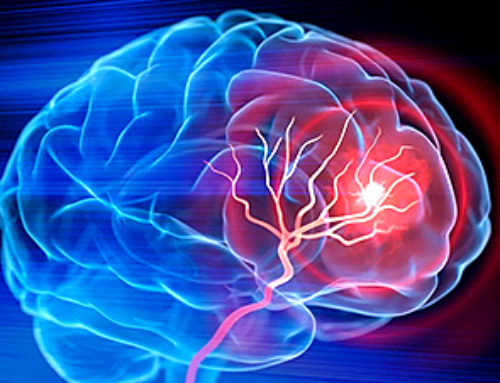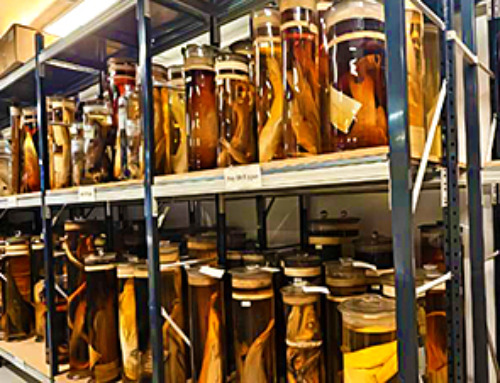Bank of America and Harvard University have collaborated on a new initiative designed to make the complex technologies behind artificial intelligence (AI) and machine learning (ML) more universally beneficial and accessible to the global workforce. The mission of the newly formed Council on the Responsible Use of Artificial Intelligence is to address issues of policy and ethics, thereby enabling industries and the individuals who drive them to keep pace with the rapidly evolving interface between people and machines.
Through the development of best practices and by maintaining a transparent dialogue, the Council strives to leverage the speed and convenience that AI and ML can provide industries such as finance, healthcare, retail, manufacturing and others. Bank of America’s chief operations and technology officer, Cathy Bessant, is a founding member of the council, which was formed in April 2018.
“I started thinking about the implications of the potential uses for artificial intelligence about 18 months ago,” she explained. “A huge piece of this is my own workforce here at Bank of America. In the face of ever-increasing technological change, how do we keep a workforce engaged and motivated? How are we thinking proactively about career development and career transformation? Can somebody who processes [data] manually today learn artificial intelligence, or learn how to manage a team of bots or machines that create outcomes in place of people?”
Therein lies the rub with artificial intelligence in a world that may not be quite ready for its benefits and, as some would say, possible pitfalls. While AI possesses vast potential for simplifying our lives, Bessant’s concerns are validated by the fact that many people view it as a threat to their livelihoods, creating skepticism and, in extreme cases, fear.
To help change the current ideology, the Council was formed to research the latest developments in this emerging technology and to educate the populace on its legal and moral implications, as well as to develop better, more useful and responsible ways to utilize a gift that is still widely misunderstood.
Image Credit: From the article on pymnts.com
News This Week
Scientists Develop IV Therapy That Repairs the Brain After Stroke
New nanomaterial passes the blood-brain barrier to reduce damaging inflammation after the most common form of stroke. When someone experiences a stroke, doctors must quickly restore blood flow to the brain to prevent death. [...]
Analyzing Darwin’s specimens without opening 200-year-old jars
Scientists have successfully analyzed Charles Darwin's original specimens from his HMS Beagle voyage (1831 to 1836) to the Galapagos Islands. Remarkably, the specimens have been analyzed without opening their 200-year-old preservation jars. Examining 46 [...]
Scientists discover natural ‘brake’ that could stop harmful inflammation
Researchers at University College London (UCL) have uncovered a key mechanism that helps the body switch off inflammation—a breakthrough that could lead to new treatments for chronic diseases affecting millions worldwide. Inflammation is the [...]
A Forgotten Molecule Could Revive Failing Antifungal Drugs and Save Millions of Lives
Scientists have uncovered a way to make existing antifungal drugs work again against deadly, drug-resistant fungi. Fungal infections claim millions of lives worldwide each year, and current medical treatments are failing to keep pace. [...]
Scientists Trap Thyme’s Healing Power in Tiny Capsules
A new micro-encapsulation breakthrough could turn thyme’s powerful health benefits into safer, smarter nanodoses. Thyme extract is often praised for its wide range of health benefits, giving it a reputation as a natural medicinal [...]
Scientists Develop Spray-On Powder That Instantly Seals Life-Threatening Wounds
KAIST scientists have created a fast-acting, stable powder hemostat that stops bleeding in one second and could significantly improve survival in combat and emergency medicine. Severe blood loss remains the primary cause of death from [...]
Oceans Are Struggling To Absorb Carbon As Microplastics Flood Their Waters
New research points to an unexpected way plastic pollution may be influencing Earth’s climate system. A recent study suggests that microscopic plastic pollution is reducing the ocean’s capacity to take in carbon dioxide, a [...]
Molecular Manufacturing: The Future of Nanomedicine – New book from Frank Boehm
This book explores the revolutionary potential of atomically precise manufacturing technologies to transform global healthcare, as well as practically every other sector across society. This forward-thinking volume examines how envisaged Factory@Home systems might enable the cost-effective [...]














Leave A Comment